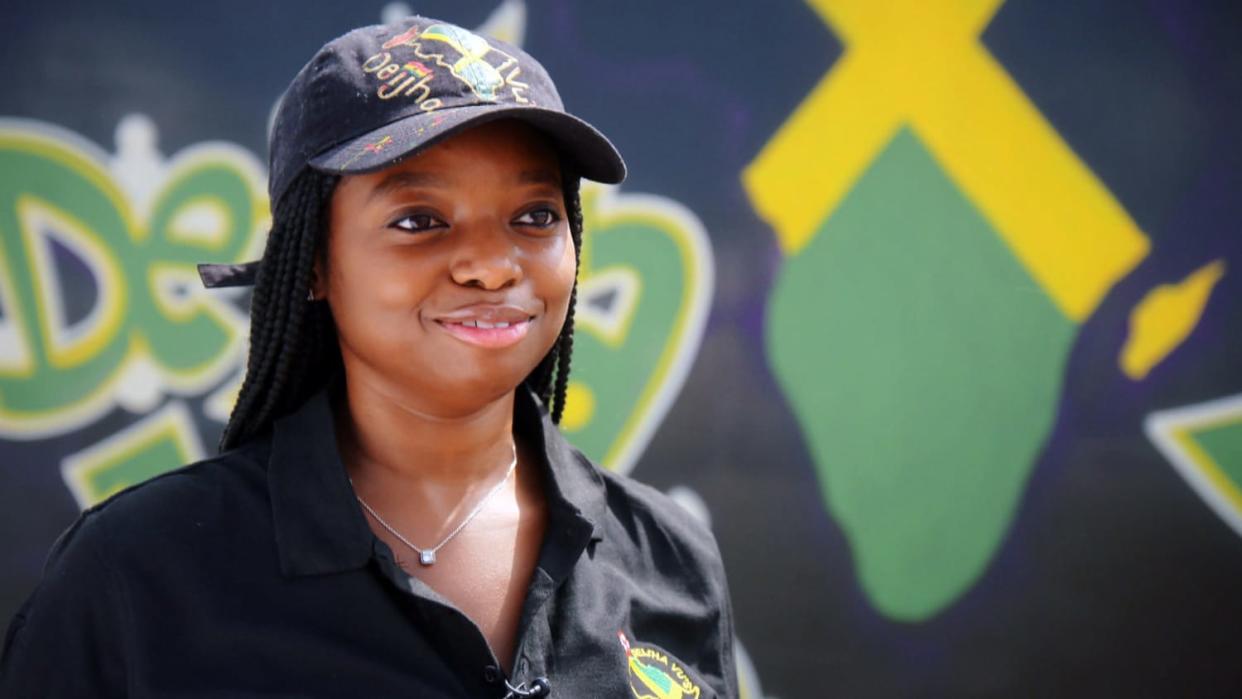Going to Ghana: Black Americans explore identity living in Africa
On West Africa's coast, Ghana is drawing black people from around the world.
The region played a central role in the trans-Aatlantic slave trade. Last year marked 400 years since enslaved people arrived in America, and the country honored the resilience of black people with a "Year of Return" initiative. Historic tours, parties, celebrations and the Afrochella music festival were arranged.
"When we start with the fun, they see that traveling to Africa is not that bad," said Jewel Thompson, an Atlanta native living in Ghana. "It's not all safaris and beaches. There's more than just what you think you understand about the continent, and especially about Ghana."
Now, the government is expanding the idea with a new initiative, "Beyond the Return," which invites black people to invest financially and socially in Ghana. According to officials, the country is making a pathway to citizenship easier for foreigners and reforming the visa process to make the country more accessible to travelers. It hopes to increase tourists' visits from 1 million to 8 million by 2027.
"We feel that given the wealth that African Americans and black Americans have, given that spending power, travel budgets of blacks in America, we felt that it's about time that we start that conversation that, instead of moving to any other destination, come back to where you came from," said Akwasi Agyeman, CEO of Ghana's Tourism Authority. "We also felt that the history was not being taught."
NFL veteran Malcolm Jenkins is buying land to build a vacation home in Ghana. After having visited three times, Jenkins continues to explore history.
"We come from a lineage of people that we've been disconnected from, and I think it's really important that we start to take that journey as individuals," Jenkins said. "I think it's the right time for African Americans as they make that journey back to the homeland to actually lay roots and play a part in the process of really building a strong and unified Africa."
Some black Americans are moving to Ghana permanently. NBC News traveled to Ghana before the COVID-19 pandemic to find out what life is like and how the resurgence in tourism is affecting both them and local residents.
Feelings of displacement for some in the black community linger as police-involved violence makes national headlines. According to one study, from 2013 to 2018, black men and boys were 2.5 times more likely than white men and boys to die in encounters with police. The study reported that at least 1 in 1,000 black men and boys in America can expect to die in police-involved encounters.
Amma Aboagye was raised in Maryland and now lives in Ghana.
"You think that, oh, America's so great," Aboagye said. "But when you go there, your body is weaponized. Your body is seen as a threat. You, as a black man, being on the street, laughing, dapping up your people that you do in your village and everybody thinks is normal. When you go somewhere else, it's seen as violent. It's seen as disruptive."
Mjiba Frehiwot, a research fellow at the University of Ghana, said: "When you start talking about social issues in America, then you begin to think, ‘Is there something outside of America?' I definitely think social movements truly help to politically educate people in order to think beyond their space. And that will then quickly bring you back to the African continent."
Jewel Thompson moved two years ago and is working as a businesses lecturer in the education space. Both of her parents are Ghanaian, and the move has allowed her to strengthen local family relationships and develop a deeper sense of self.
"You're constantly searching for who am I, where do I come from, what does that mean to me," Thompson said. "But when you come here, there's this invitation that you're home. And being here sparks this feeling within you that,OK, I see my people, I see who they were before this story was told about them, and now I can relate."
Deijha Gordon, 28, was raised in New York. Her father is Guyanese and her maternal grandfather is Jamaican. After visiting Ghana on vacation when she was 23, she fell in love with the country, moved there in October and launched a Jamaican jerk food truck.

The process was a challenge — she had to navigate building the truck, hiring and training staff and figuring out where she can park daily. But for Gordon, the risk was worth it, because living with people who look like her is freeing and gives her a sense of belonging.
"I feel like this is the motherland," Gordon said. "This is where it all started. This is where we came from. And I feel like it's so important for us to know where we came from. … And once you find your roots and you find your history, you have a sense of confidence knowing that 'OK, I'm important. I came from important people. My people fought for me to be here today.'"
Some say there's a growing connection fueled by history to change the future.
"I think in the next five to 10 years, you're going to see a larger connection between the diaspora and the continent," Frehiwot said. "I think that history shows us that this is just the continuation of the relationship that we've had."
